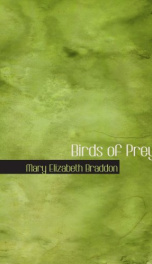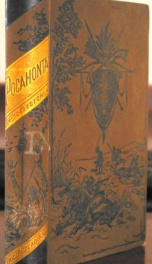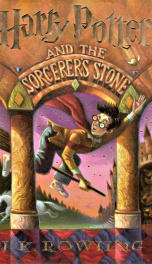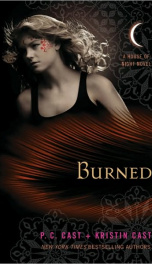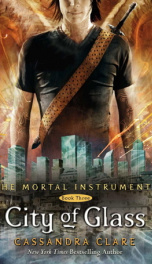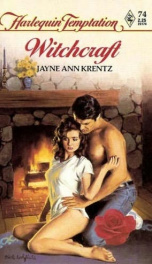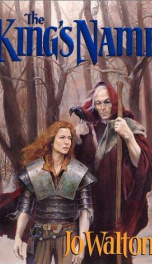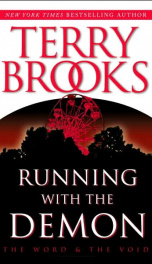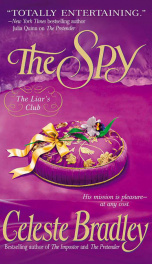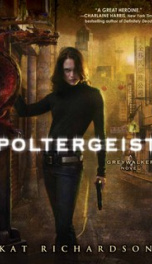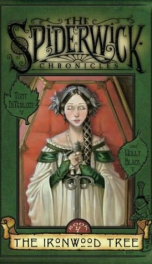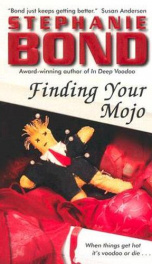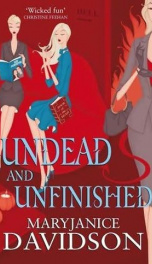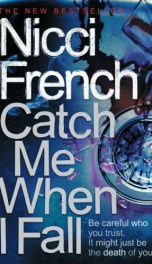Grossmith George
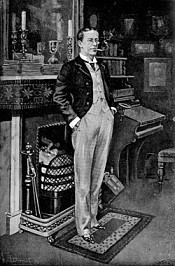
For Grossmith's son, the musical theatre actor, see George Grossmith, Jr.. George Grossmith (9 December 1847 – 1 March 1912) was an English comedian, writer, composer, actor, and singer. His performing career spanned more than four decades. As a writer and composer, he created 18 comic operas, nearly 100 musical sketches, some 600 songs and piano pieces, three books and both serious and comic pieces for newspapers and magazines. Grossmith is best remembered for two aspects of his career. First, he created a series of nine memorable characters in the comic operas of Gilbert and Sullivan from 1877 to 1889, including Sir Joseph Porter, in H.M.S. Pinafore (1878), the Major-General in The Pirates of Penzance (1880) and Ko-Ko in The Mikado (1885–87). Second, he wrote, in collaboration with his brother Weedon, the 1892 comic novel Diary of a Nobody. Grossmith was also famous in his day for performing his own comic piano sketches and songs, both before and after his Gilbert and Sullivan days, becoming the most popular British solo performer of the 1890s. Some of his comic songs endure today, including "See Me Dance the Polka". He continued to perform into the first decade of the 20th century. His son, George Grossmith, Jr., became a famous actor, playwright and producer of Edwardian musical comedies. George Grossmith was born in Islington, London and grew up in St. Pancras and Hampstead, London. His father, also named George (1820–1880), was the chief reporter for The Times and other newspapers at the Bow Street Magistrates' Court and was also a lecturer and entertainer. His mother was Louisa Emmeline Grossmith née Weedon (d. 1882). Over the years, Grossmith's father spent less of his time at Bow Street and more of it touring as a performer.[1] As a young man, Grossmith was usually credited as "Jnr" to distinguish him from his father, especially when they performed together, but for most of his career, he was credited simply as "George Grossmith". Later, his actor-playwright-theatre manager son was credited as George Grossmith "Jr" rather than "III"; some sources confuse the two men. His other son, Lawrence Grossmith, was also a successful actor, primarily in America. Grossmith had a younger sister, Emily, and younger brother, Weedon. In 1855, he went to boarding school at Massingham House on Haverstock Hill in the district of Hampstead. There he studied the piano and began to amuse his friends and teachers with shadow pantomimes, and later by playing the piano by ear. His family moved to Haverstock Hill when young Grossmith was 10, and he became a day student.[2] At the age of 12, he transferred to the North London Collegiate School in Camden Town. He was back in St. Pancras by age 13.[3] He was an avid amateur photographer and painter as a teenager, but it was his brother Weedon who went to art school. The Grossmith family had many friends engaged in the arts, including J. L. Toole, Ellen Terry, Henry Irving, H. J. Byron, Tom Hood, T. W. Robertson, and John Hollingshead (later, the manager of the Gaiety Theatre, London).[2] Grossmith had hoped to become a barrister. Instead, he worked for many years, beginning in the 1860s, training and then substituting for his father as the Bow Street reporter for The Times, among other publications, when his father was on his lecture tours. Among the cases on which he reported was the Clerkenwell bombing by the Fenians in 1867.[1] At the same time as he began reporting, he began to write humorous articles for periodicals and to participate in amateur theatrical performances.[4] He also joined his father in his entertainments, lectures, and imitations, and began to add music to the entertainments, which his father had not done.[5] In 1873, Grossmith married Emmeline Rosa Noyce (d. 1905), the daughter of a neighbourhood physician, whom he had met years earlier at a children's party.[2] The couple had four children: George, Sylvia (23 September 1875–1932; married Stuart James Bevan in 1900), Lawrence (29 March 1877–1944), and Cordelia Rosa (31 March 1879–1943).[6] The family lived initially in Marylebone before moving, about 1885, to 28 Dorset Square nearby. Young Grossmith received some recognition for amateur songs and sketches at private parties and, beginning in 1864, at "penny readings". He also participated in a small number of theatricals as an amateur, including playing John Chodd, Jr. in Robertson's play, Society, at the Gallery of Illustration, in 1868. The after-piece was a burlesque, written by Grossmith's father, on No Thoroughfare. He then played the title role in Paul Pry, a comedy by Poole, also at the Gallery of Illustration, in 1870.[7] But he and his father felt that his talents lay in "sketch" comedy rather than theatre. The younger Grossmith admired the comic pianist and entertainer John Orlando Parry, who created and performed in many of the German Reed Entertainments, and he tried to emulate Parry in developing his own sketches, consisting of humorous anecdotes, mildly satirical comment, ad lib chat, and comic songs centred on the piano.[8] Grossmith took to the professional stage in 1870 with a sketch called Human Oddities, written by his father, and a song called "The Gay Photographer" (that is, the "carefree" photographer).[8] The song, with words by Grossmith's father and music by young Grossmith, concerns a photographer who broke the heart of a young lady named Miss Jenkins; so she drank his chemicals and died.[9] In late 1870, the younger Grossmith appeared on his own with a nightly spot at the "old Polytechnic" in Regent Street, where comic sketches alternated with scientific and serious lectures for the entertainment of the public.[5] Human Oddities and another sketch, The Yellow Dwarf, were successful for Grossmith, and he took the former work on tour for six months. An 1871 Grossmith sketch was called He was a Careful Man.[8] Biographer Tony Joseph notes that, except for a few early pieces, nearly all of Grossmith's material was written and composed by Grossmith himself. Joseph describes the sketches as "a light-hearted sending up of various aspects of contemporary life and manners. ...he was the complete performer... as a pianist (he performed for the most part sitting at a piano)... as a raconteur... as a mimic, facial expression, timing—he had it all. A short, dapper figure, he turned his lack of inches to positive advantage, and audiences took to him everywhere."[1] Grossmith toured in the summer of 1871 with Mr and Mrs Howard Paul and occasionally afterwards. He and Mrs Paul would also appear together in The Sorcerer in 1877.[10] Also in 1871, at the Polytechnic, he performed three more sketches, The Puddleton Penny Readings, Theatricals at Thespis Lodge[8] and The Silver Wedding[11] (including what would be one of his most popular songs, "I am so Volatile", with words by his father).[12] On 14 February 1872, Grossmith gave a sketch parody of a penny reading at the Gaiety Theatre, London, since on Ash Wednesday, theatres refrained from presenting costumed performances out of respect for the holiday. At the time, coincidentally, the Gaiety was presenting Thespis, Gilbert and Sullivan's first collaboration.[13] Throughout these years, Grossmith continued working at Bow Street during the day. In 1873, Grossmith and his father began joint tours of humorous recitations and comic sketches at literary institutes and public halls, to church groups and to branches of the YMCA all over England and even in Scotland and Wales. Young Grossmith's sketches at this time included The Puddleton Penny Readings, Our Choral Society and In the Stalls. They toured almost constantly for the following three years, but they returned to see their families in London on weekends.[14] Also around this time, Grossmith began to entertain at private "society" parties, which he continued to do throughout his career. These parties would often occur late in the evening after Grossmith performed at the Savoy Theatre.[15] In 1876, he collaborated with Florence Marryat, the author and reciter (the daughter of Captain Frederick Marryat), on Entre Nous. This piece consisted of a series of piano sketches, alternating with scenes and costumed recitations, including a two-person "satirical musical sketch", really a short comic opera, called Cups and Saucers, which they then toured.[14] Grossmith also took a number of engagements, including recitals at private homes.[12] In 1877, Lionel Brough introduced another popular Grossmith song, "The Muddle Puddle Junction Porter".[13] After entertaining professionally in sketch comedy for seven years, Grossmith discovered that his income decreased each year as his family and household expenses increased. He also disliked travelling. Accordingly he was pleased when, despite his relative inexperience in legitimate theatre, he received a letter from Arthur Sullivan in November 1877 inviting him to take a part in his new piece with W. S. Gilbert – The Sorcerer.[7] Grossmith had appeared in charity performances of Trial by Jury, where both Sullivan and Gilbert had seen him[16] (indeed, Gilbert had directed one such performance, in which Grossmith played the judge),[17] and Gilbert had earlier commented favourably on his performance in Tom Robertson's Society at the Gallery of Illustration.[7][18] Sullivan mentioned to Arthur Cecil, the leading tenor from the Gallery of Illustration, that he was looking for someone to play the comic title role in his new comic opera, The Sorcerer. Cecil reminded Sullivan about Grossmith, and Sullivan seized on the idea.[7] After singing for Sullivan, upon meeting Gilbert, Grossmith wondered aloud if the role shouldn't be played by "a fine man with a fine voice". Gilbert replied, "That is exactly what we don't want."[19] Although Grossmith had reservations about cancelling his touring engagements and going into the "wicked" professional theatre (a move that might lose him church and other engagements in the future), and Richard D'Oyly Carte's backers objected to casting a sketch comedian in the central role of a comic opera, Grossmith was hired. Grossmith was a hit as the tradesmanlike John Wellington Wells, the title role in The Sorcerer, and became a regular member of Richard D'Oyly Carte's company. He created all nine of the lead comic baritone roles in Gilbert and Sullivan's famous Savoy Operas in London from 1877 to 1889, including the pompous First Lord of the Admiralty, Sir Joseph Porter, in H.M.S. Pinafore (1878); Major-General Stanley in The Pirates of Penzance, who is an expert at everything except "military knowledge" (1880); the aesthetic poet, Reginald Bunthorne in Patience (1881); the love-lonely Lord Chancellor in Iolanthe (1882); the sarcastic cripple, King Gama, in Princess Ida (1884); Ko-Ko the cheap tailor, elevated to the post of Lord High Executioner, in The Mikado (1885); the accursed Robin Oakapple in Ruddygore (1887); and the pathetic jester, Jack Point, in The Yeomen of the Guard (1888). On 29 January 1887, one week after the opening night of Ruddygore, Grossmith fell dangerously ill.[20] However, by 13 February, his physicians pronounced him convalescent,[21] and he resumed the role of Robin by 18 February.[22] During Grossmith's absence, his understudy Henry Lytton, who would later become the principal comedian of the company, had the opportunity to perform the role in Grossmith's place.[23]
do you like this author?
What readers are saying
What do you think? Write your own comment on this book!
write a commentWhat readers are saying
What do you think? Write your own comment on this author!
write a commentWhat readers are saying
What do you think? Write your own comment on this author!
write a commentif you like Grossmith George try:
readers also enjoyed
What readers are saying
What do you think? Write your own comment on this author!
write a commentif you like Grossmith George try:
readers also enjoyed
Do you want to exchange books? It’s EASY!
Get registered and find other users who want to give their favourite books to good hands!

